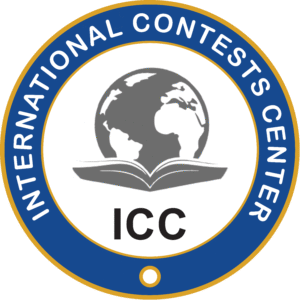Copernicus
Natural Science Olympiad
Natural Science is the study of the natural world, helping us understand how both living and non-living things function. It includes key branches like biology, chemistry, physics, and earth science, each exploring different aspects of nature. Natural science relies on observation, experimentation, and evidence to explain how the world works. This field of science is essential in solving real-world problems, making new discoveries, and improving our daily lives. By exploring matter, energy, life, and the environment, natural science inspires curiosity and shapes the future through innovation and understanding. Natural science turns curiosity into clarity; it challenges them to think like scientists: to observe, to question, to experiment, and to uncover the logic behind the world around them.
Natural Science Olympiad
Rules And Regulations
Please ensure you carefully follow all exam rules and regulations:
- The Copernicus Natural Science Olympiad is an international competition open to students from Grades 2 to 12.
- The Olympiad consists of two rounds – the Preliminary Round and the Global Round.
- Students may register online via website or get registered through their schools.
- All registered participants must take an online qualifying exam as part of the Preliminary Round.
- The examination process is divided into two rounds.
How to Qualify?
Copernicus Natural Science Olympiad
Here are some guidelines to follow for qualifying in Natural Science Olympiad,
1.
The exam includes a total of 20 questions: 15 multiple-choice questions and 5 open-ended questions designed to assess deeper understanding and critical thinking.
2.
The duration of this paper is 75 minutes.
3.
Students must take the exam based on their respective grade category:
✔ Category 1 – Grades 2,3 & 4
✔ Category 2 – Grades 5 & 6
✔ Category 3 – Grades 7 & 8
✔ Category 4 – Grades 9 & 10
✔ Category 5 – Grades 11 & 12
4.
Students who score at least 40% in the Preliminary Round are eligible to participate in the Global Round.
5.
Global Round qualifiers must complete a separate registration on the official website.
6.
Details regarding the date and venue of the Global Round will be announced in August 2025.
7.
The Global Round exam features 20 questions: 15 multiple-choice questions and 5 open-ended questions covering Natural Science, with subcategories similar to those in the Preliminary Round.
Natural Science Olympiad
Awards
Below are the Award details for both the Preliminary and Global Rounds of the Natural Science Olympiad.
Preliminary
Round:
- All Preliminary Round participants, regardless of score, will receive a Certificate of Participation.
- Students who qualify for the Global Round will receive a Certificate of Achievement and a medal (gold, silver or bronze) based on their Preliminary Round performance.
- In the Preliminary Round, medals will be awarded based on the following percentages :
- 91% to 100% – Gold Medal + 10% off in the Global Round registration fees
- 81% to 90% – Silver Medal + 5% off in the Global Round registration fees
- 65% to 80% – Bronze Medal
- 50% to 64% – Honorable Mention Certificate
- Below 50% – Participation Certificates
- Absolute winners (youngest top scorers) of each category will receive free participation in the Global Round.
Global
Round
- All Global Round participants, regardless of score, will receive a Certificate of Participation.
- In the Global Round, medals will be awarded based on the following percentages:
- The top 10% will receive a Gold Medal.
- The next 11-30% will receive a Silver Medal.
- The next 31-60% will receive a Bronze Medal.
- The next 61-75% will receive an Honorable Mention Certificate.
Category (1 - 5)
1st place – iPad / MacBook
2nd place – Oculus Quest 2
3rd place – Apple Watch SE

Natural Science Olympiad
Past Papers
Syllabus
Natural Science Olympiad
Category 1 (Grades 2,3 & 4)
Life Science
● Characteristics of living things
● Basic needs of living things
● Structures and functions of plants
● Structures and functions of animals
● Parts and functions of the human body
● Major organs of the human body
● Classification of animals – vertebrates and invertebrates
● Basic plant and animal adaptations to their environment
● Simple food chain
● Roles in ecosystem – producers, consumers, decomposer
Physical Science
● Definition of matter
● Classification of matter
● Characteristics of solid, liquid, gases
● Sorting objects as solid, liquid, gases
● Measuring volume and mass
● Definition of force
● Effects of force on matter
● Definition of energy
● Types of energy – potential and kinetic
● Forms of energy
● Types of weather
● Members of the solar system
Category 2 (Grades 5 & 6)
Life Science
• Human body systems – parts and
functions
• Basic parts and functions of the cell
• Comparing prokaryotes and
eukaryotes
• Plant reproduction – natural and
artificial
• Reproductive parts of the plants
• Seed germination
• Life cycle of plants
• Animal reproduction – internal and
external reproduction
• Life cycle of animals (i.e., insects,
frog, mammal)
• Complete and incomplete
metamorphosis
• Behavioral and structural adaptations
of plants and animals
• Classification of animals based on
the food they eat
• Food chain and food web
• Nutrient cycle (carbon, water,
oxygen, nitrogen)
Physical Science
• Basic structure of an atom
• Subatomic particles
• Atom vs molecule
• Element vs compound
• Physical and chemical properties of matter
• Physical and chemical changes in matter
• Motion in one dimension
• Speed vs velocity
• Distance vs displacement
• Acceleration
• Transformation of energy
• Energy sources
• Heat vs temperature
• Circuits
• Phases of the moon
• Seasons and tides
• The Milky Way
• Types of galaxies
• Minerals and rocks
• Rock layers and soil formation
Category 3 (Grades 7 & 8)
Life Science
● Levels of biological organization
● Human body systems – parts, functions, and interactions
● Cell structure and function
● Cell theory
● Comparing plant and animal cells
● Vascular and nonvascular plants
● Angiosperm and gymnosperm
● Levels of ecological organization
● Biotic and abiotic factors of ecosystem
● Food chain, food web, and transfer of energy in ecosystem
● Interactions in ecosystem (symbiotic and non-symbiotic relationships)
● Microorganisms – bacteria, fungi, and protists
● History of life and earth formation (different eras)
Physical Science
● Classification of matter – pure substances and mixtures
● Phase changes
● The Periodic Table of Elements
● Chemical symbols and formulas
● Law of conservation of mass
● Two-dimensional motion
● Newton’s laws of motion
● Work, power, and energy
● Transformation of energy (potential to kinetic and vice versa)
● Magnetism
● Rock cycle
● Types of rocks
● Weathering, erosion, and deposition
● The Universe
Category 4 (Grades 9 & 10)
Life Science
● Human body systems – parts and functions
● Basic parts and functions of the cell
● Comparing prokaryotes and eukaryotes
● Plant reproduction – natural and artificial
● Reproductive parts of the plants
● Seed germination
● Life cycle of plants
● Animal reproduction – internal and external reproduction
● Life cycle of animals (i.e.,insects, frog, mammal)
● Complete and incomplete metamorphosis
● Behavioral and structural adaptations of plants and animals
● Classification of animals based on the food they eat
● Food chain and food web
● Nutrient cycle (carbon, water, oxygen, nitrogen)
Physical Science
● Basic structure of an atom
● Subatomic particles
● Atom vs molecule
● Element vs compound
● Physical and chemical properties of matter
● Physical and chemical changes in matter
● Motion in one dimension
● Speed vs velocity
● Distance vs displacement
● Acceleration
● Transformation of energy
● Energy sources
● Heat vs temperature
● Circuits
● Phases of the moon
● Seasons and tides
● The Milky Way
● Types of galaxies
● Minerals and rocks
● Rock layers and soil formation
Category 5 (Grades 11 & 12)
Life Science
● Human body systems – illnesses affecting organs
● Human reproduction
● Cell cycle
● Cell division – mitosis and meiosis
● Prokaryotes and viruses
● Energy pyramid and trophic levels
● Carrying capacity and limiting factors
● Factors affecting the population in an ecosystem
● Biodiversity and sustainability
● Mendel’s experiments
● Laws of inheritance (Mendelian and non-Mendelian
● Human genome and chromosome
● Punnett square – monohybrid and dihybrid cross
● Genetic disorders
Physical Science
● Atomic theory
● Isotopes and average atomic mass
● Chemical reactions
● Parts of a chemical equation
● Balancing a chemical equation
● Momentum
● Newton’s law of gravitation
● Waves and energy
● Electromagnetic waves
● Electromagnetism
● Optics
● Fossilization
● History of earth – ice cores
● Stars
● The Big Bang Theory
FAQs
Helping You Understand International Contests Center (ICC) Better.
follow the link to get the preparatory Material,
https://icccenter.com/
More than 5 students will appear paper base and less than 5 students will appear online.
For Natural Science/ Maths: Grade (02 to 12 & O/A Level)
For Physics & Astronomy: Grade (08 to 12 & O/A Level)
For English: Grade 1 - 10
Last date of submit the registration form for Natural Science and Physics Atronomy is 28 August 2025.
For a private participant, you need to have the following requirements for the Olympiad:
1) Strong & Stable Internet
2) Individual Laptop/ Mobile/ Tablet
3) Camera and Mic should be working
Please send all your questions and comments to info@icccenter.com or call directly to ICC Support Team +92423-6662377, +92-423-6612109, +92-300-5866609, +92-300-4266810 . Your queries will be addressed straight away.
